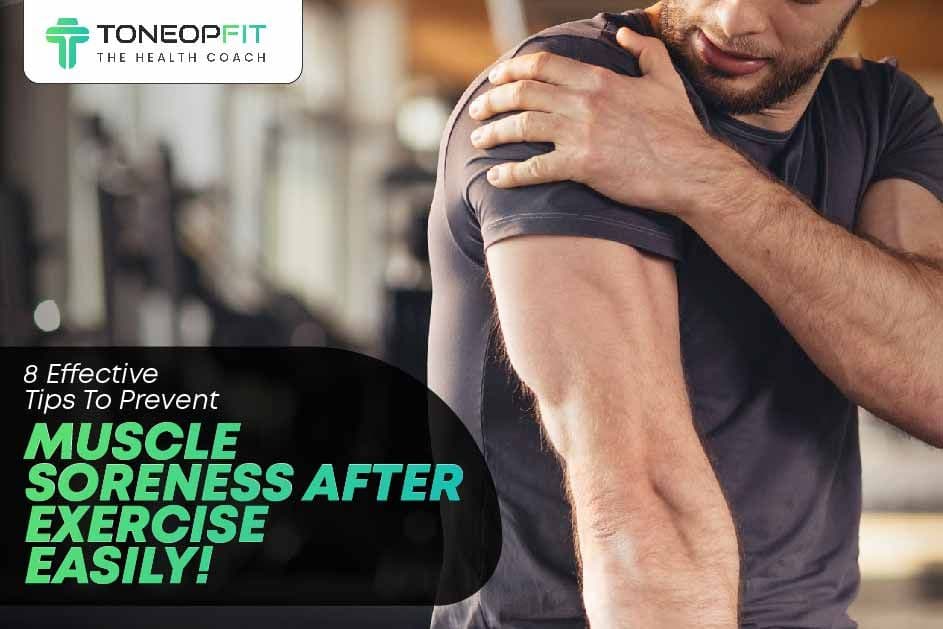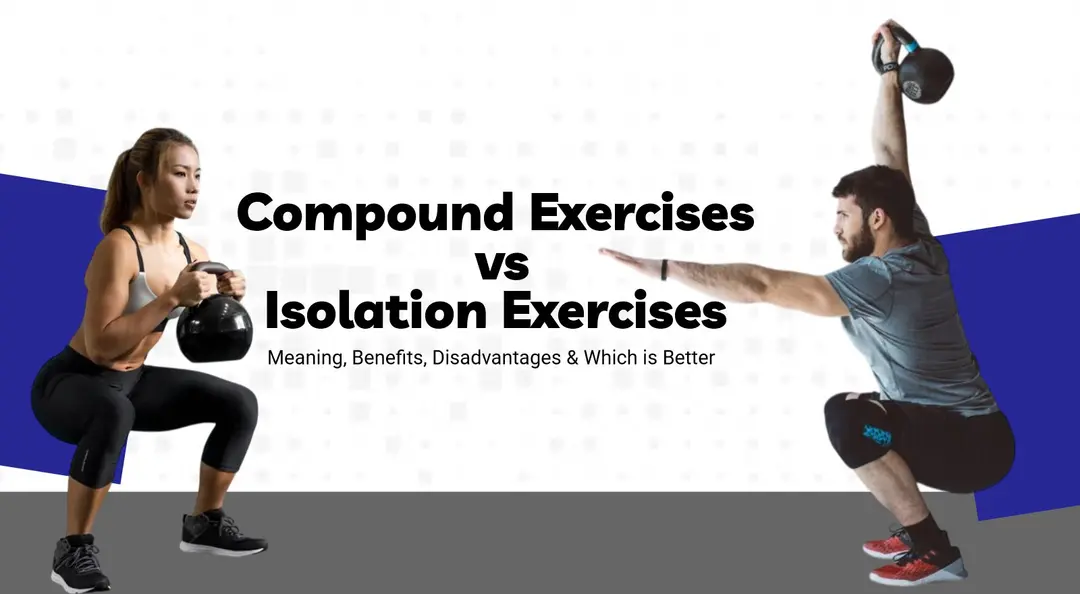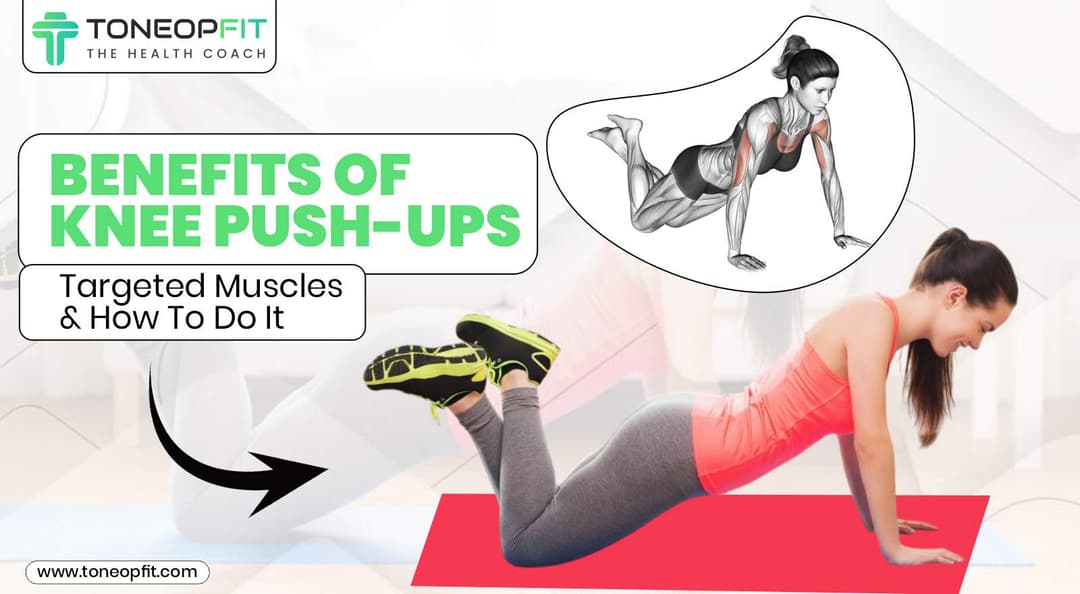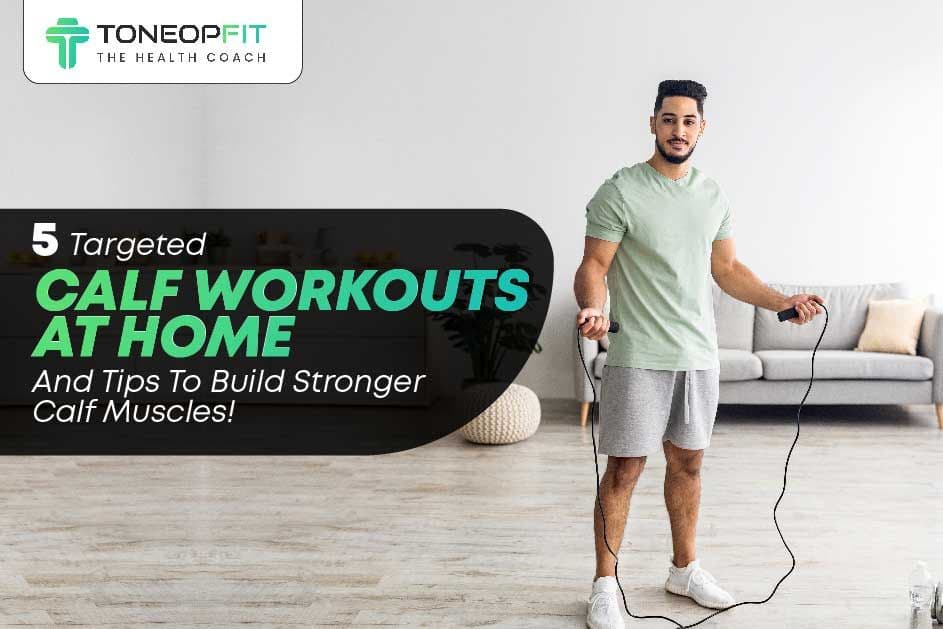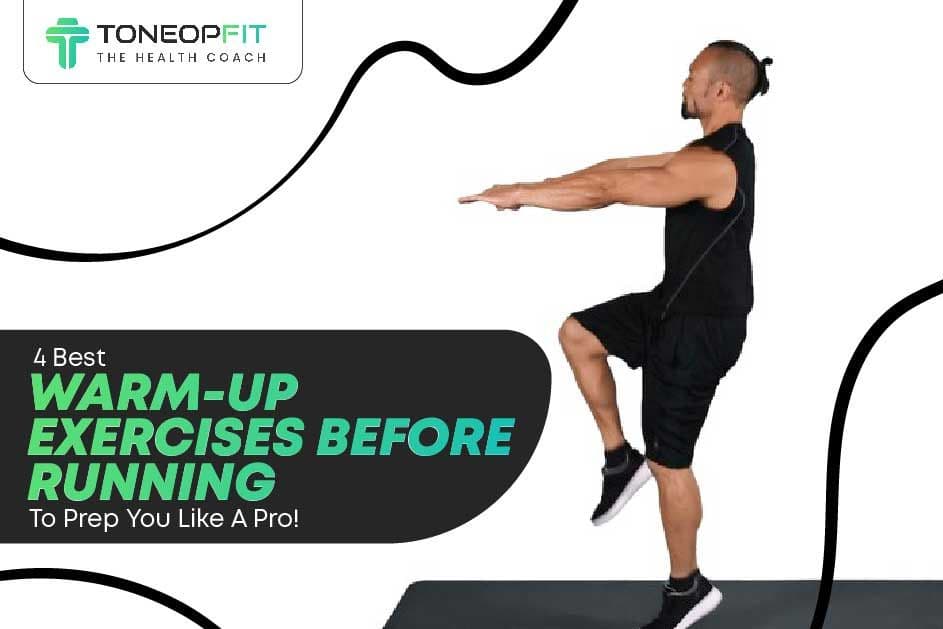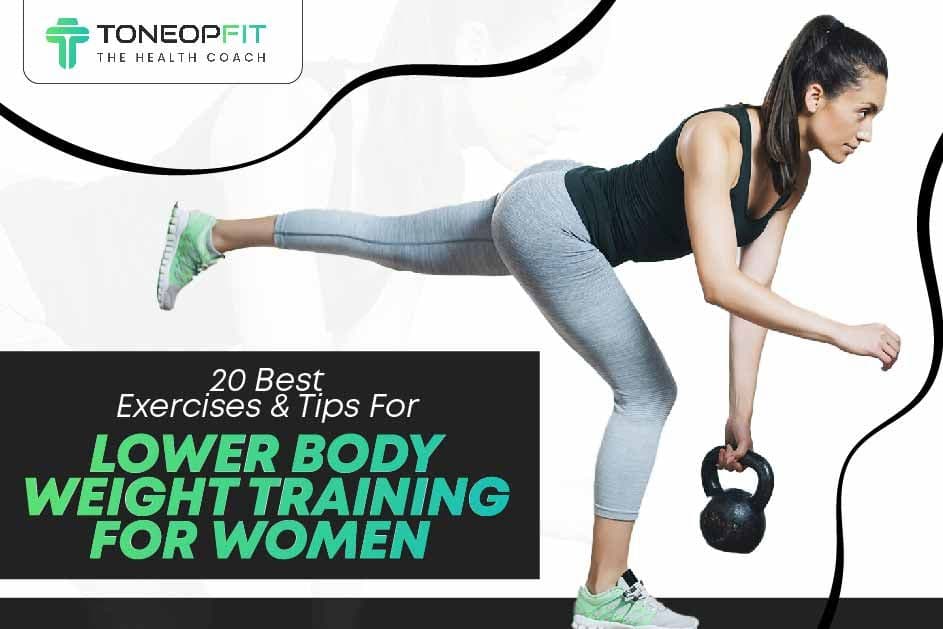Should you push through the soreness and continue working out, or should you let your body recover? After a hard and energetic workout, there is a high chance that your body will experience some muscle soreness, and it's quite common.
Muscle soreness refers to the common discomfort felt after exercise, particularly after engaging in new activities or increasing the intensity of workouts. Muscle aches and pains are usually caused by tiny tears in muscle fibres, which trigger inflammation as the body repairs the damage and builds strength.
It is important to look for ways to manage the symptoms to protect your muscles from this pain. In this blog, we will discuss the seven best tips and tricks to prevent muscle soreness after exercise. Continue reading to learn more!
Table of Contents
- What Helps Sore Muscles After Workout Or How To Relieve Sore Muscles After Workout?
- How Long Do Sore Muscles Last?
- Should I Still Work Out If My Muscles Are Sore?
- The Final Say
- FAQs
- References
What Helps Sore Muscles After Workout Or How To Relieve Sore Muscles After Workout?

What helps sore muscles after a workout? Sore joints and muscles are quite common while doing exercises. They can be painful and can last for 2-5 days. But worry not. Here are some helpful tips and tricks that you can follow to get relief from muscle soreness after exercise:
1. Try Foam Rolling
Foam rolling is a form of self-massage that can help reduce muscle pain and stiffness while improving the range of motion. This sore muscle relief technique involves using a foam roller or another tool to massage the fascia, the connective tissue that supports muscles, tendons, and ligaments.
You can try foam rolling after workouts to reduce pain and enhance athletic performance or use it to warm up your muscles before exercise. Beginners may find starting with a smooth, low-density foam roller or massage ball more comfortable.
2. Use Essential Oils
Many people use essential oils to address various health and wellness issues, including muscle pain after a workout. While more research is needed, options like lavender and rosemary oil may be beneficial. It's important to use quality products and remember to dilute essential oils with some carrier oils to prevent skin irritation. It's recommended to start with a patch test and use small amounts of diluted oil on achy muscles.
Also Read: 20 Effective Muscle Toning Workouts For Beginners | ToneOpFit
3. Do Some Stretching
The best way to prevent muscle soreness after a workout or to ensure proper muscle recovery after a workout, is to do stretching exercises. You can start by investing 10 to 15 minutes in light to moderate stretch exercises before workout and light aerobic activity to warm up your muscles and get your blood flowing. This helps prevent injuries and prepares your muscles for recovery after your workout.
4. Opt For Ice Or Heat Therapy
Choosing whether to use ice or heat for sore muscles can be confusing. Both methods can help, as cold therapy reduces swelling and pain for new injuries, while heat therapy aids muscle recovery and relieves tight, sore muscles for older injuries.
One study found ice or heat within 1 hour after exercise soothes muscle aches. Ice baths had pain-relieving effects for up to 24 hours, while heating pads provided relief for longer. You can start with ice therapy and switch to heat as muscle pain peaks, and it's okay to try both methods to see what works best for you.
5. Try Wearing Compression Gear
Wearing compression gear after a workout can help muscle recovery and blood circulation. In a study, runners who wore compression socks during a 1-hour recovery period reported less muscle soreness and could perform just as well during a second workout.
This benefit isn't just for athletes, as another study showed that inactive adults experienced significantly less muscle soreness after working out when wearing compression socks compared to regular socks.
6. Hydrate is the Master key
Proper hydration is essential for fueling your workouts and aiding muscle recovery after training. If not managed, dehydration can significantly worsen post-workout pain and prolong recovery, underscoring the importance of staying hydrated. Choosing water or electrolyte drinks based on exercise intensity can prevent these adverse effects and maintain optimal hydration.
7. Maintain Your Sleep Cycle
Quality sleep is essential for maintaining overall health, including heart health, mood, and muscle recovery. Adults should aim for at least 7 to 9 hours of sleep each night to allow muscles to repair and grow after exercise and reduce pain sensitivity. By prioritising quality sleep, you can improve your overall well-being and make your post-exercise recovery more effective, leading to better physical performance and reduced discomfort.
8. Keep Moving
Even when your muscles are sore, light exercises, such as walking or simply stretching, can help boost blood circulation and enhance the body's natural ability to remove waste and chemicals contributing to muscle aches. It's like giving your body a gentle push to clear out the discomfort and make you feel better.
Also Read: Best Core Muscle Exercises for Maximum Results | ToneOpFit
How Long Do Sore Muscles Last?
After exercising, it's normal to experience sore muscles, also known as delayed-onset muscle soreness (DOMS). This muscle pain after a workout typically lasts 2-5 days and usually peaks around day three before starting to diminish. However, if the soreness persists beyond three days, it could indicate that you've overexerted your muscles or that it is a sign of an injury.
Should I Still Work Out If My Muscles Are Sore?
It's important to give your muscles time to heal. If you're feeling sore, take a break from your usual exercise routine. You can instead maintain stretch exercises for whole body routine. Pushing through the soreness can lead to overuse injuries and harm your body. Rest for two to three days if you're sore, or switch to workouts that target different muscle groups. For example, if your upper body or abdominal area is sore, focus on your lower body the next time you exercise. This will help you avoid overuse and keep making progress.
Also Read: Best Core Strengthening Exercises For Workout | ToneOpFit
The Final Say
Experiencing muscle soreness after exercise is a common occurrence that can be managed with the right strategies. By incorporating muscle pain relief techniques such as foam rolling, essential oils, stretching, ice or heat therapy, compression gear, proper hydration, and maintaining a healthy sleep cycle, you can effectively alleviate muscle soreness and aid in recovery.
It's important to listen to your body and allow short breaks to rest and recover properly when needed. By focusing on these tips, you can minimise the impact of muscle soreness after exercise and continue pursuing your fitness goals with confidence and comfort.
FAQs
1. What causes muscle soreness after a workout?
Muscle soreness after a workout, also known as delayed onset muscle soreness (DOMS), is caused by microscopic damage to muscle fibres. This damage is typically the result of eccentric (lengthening) muscle contractions during activities such as running downhill or lowering weights during resistance training.
2. What is the average muscle soreness recovery time?
The average muscle soreness recovery time varies depending on the individual, the intensity of the workout, and the type of activity performed. In general, muscle soreness can last anywhere from 24 to 72 hours. However, this timeframe can be shortened with proper recovery techniques.
3. What are some effective muscle soreness recovery techniques?
Effective muscle soreness recovery techniques include gentle stretching, light aerobic exercise, massage, foam rolling, and adequate hydration. Additionally, getting enough rest and consuming a balanced diet with adequate protein can support muscle recovery.
4. How can I prevent sore muscles after a workout?
To prevent sore muscles after a workout, it's important to warm up properly before exercising, gradually increase the intensity of your workouts, stay hydrated, and ensure proper nutrition. Additionally, incorporating regular stretching and cool-down exercises can help reduce the likelihood of experiencing muscle soreness.
References
- https://www.houstonmethodist.org/blog/articles/2021/sep/muscle-soreness-after-a-workout-can-it-be-prevented/
- https://ukhealthcare.uky.edu/wellness-community/blog-health-information/how-reduce-muscle-soreness-after-exercise
- https://www.medicalnewstoday.com/articles/326892
About ToneOp Fit
ToneOp Fit is a platform dedicated to improving and maintaining good health through a comprehensive range of goal-oriented health plans with up to 3 Coach support. With a range of Weight Management, Medical Condition, Detox Plans, and Face Yoga Plans, the app also provides premium health trackers, recipes and health content. Get customised diet, fitness, naturopathy & yoga plans and transform yourself with ToneOp.











